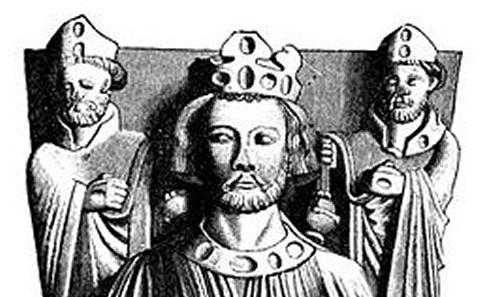'King John & Magna Carta' Study Day Event
For more information regarding this event, please email Lifelong Learning Team at lifelonglearning@southampton.ac.uk .
Event details
We will be holding a one-day cultural event on Saturday 21 February 2015 consisting of a series of short talks led by experts from within History at Southampton. This thought-provoking and inspiring conference will offer you the opportunity to learn and engage in discussion about King John and Magna Carta.
John’s reign (1199-1217) was one of the most traumatic in English history, marked by defeat in foreign wars, extensive loss of territory, economic troubles, opposition from the church, huge rebellions, a French invasion and occupation of London, and, finally, a catastrophic civil war and the succession of a powerless ten-year-old boy as John’s heir. This study day will offer the opportunity to explore the difficulties and aims of medieval government, and see how King John’s policy generated opposition from many powerful individuals and groups within the kingdom and beyond. The most important product of this opposition was Magna Carta, which was an attempt to set limits to government, to ensure that it adhered to law, and to limit taxation. The aims and meaning of Magna Carta at the time differ from modern perceptions of it, and the study day will offer the chance to examine it in relation to its thirteenth-century context.
The aim of holding government to account was a remarkable one for the thirteenth century, and has meant that Magna Carta has become a symbol of freedom and responsible government since. It was used in political and social discussion from the Renaissance onwards, in debates around the English Civil War and the American Revolution, and has been brought up in most debates concerning individual liberty and the proper limits of government, even into the digital age. Clearly this goes far beyond what the writers of Magna Carta could ever have known. The study day will also look at this afterlife of Magna Carta, and how it remains a serious cultural influence even today.
Programme
Nick Karn: War, government and rebellion in King John's reign
As king, John faced a succession of major crises, of which war with France and disputes with the pope were the most serious. In trying to cope with these, John aggravated tensions within England and pushed many into rebellion through frustration at his demands. Behind this, there were severe shortcomings in John's own personality and character. This session will set out what went wrong in John's reign, and why so many people were opposed to his rule; finally, there will be an evaluation of how far the problems were John's own creations.
Tim Tatton-Brown: The road to Runnymede
This talk will discuss the topography of the Runnymede area, and how the famous meeting in June 1215 came to be held there. It will look briefly at the geology of the area, the Thames and Staines, and particularly at Old and New Windsor, its castle, parks and forest.
Nick Karn: Magna Carta, 1215: What does it actually say?
Magna Carta has been a political and cultural icon for centuries, and has been cited in circumstances very different from those envisaged by its makers. In this session, we will look at some of the key passages, and examine why these problems were so important to people at the time, and why they were built into the document. The many clauses of Magna Carta explain much about the social structure of the day, and also about many of the key social problems that troubled contemporary minds.
Chris Woolgar: Magna Carta: The aftermath
Magna Carta 1215 is the most famous, but had only a very short period of validity. Instead, the document was re-edited and re-issued in versions which lacked many of the most controversial clauses - such as that concerning sanctions against the king. This lecture will explain how Magna Carta was used and re-used in this way, and how it was incorporated into the developing English common law, and developing English royal administration, through the thirteenth century.
Charges
£40 full rate (please email us for details of our new Loyalty Scheme)
£25 loyalty rate (Harbour Lights Members, Friends of Parkes, English Teachers Network, university staff and alumni)
£12.50 discount rate (students/sixth form & college students and those in receipt of income-based Job Seeker's Allowance, Income Support, Working Tax Credit, Council Tax or Housing Benefit)
All prices include lunch and refreshments
Payment
Please note that bookings have now CLOSED. Prior booking is required to attend this event.
What's related
Links to external websites
The University cannot accept responsibility for external websites.




